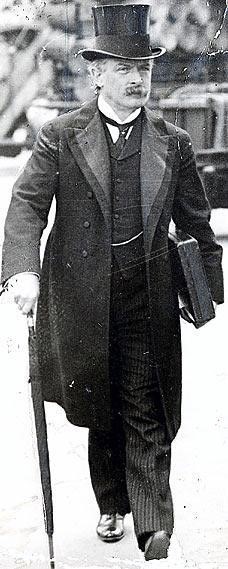The greatest ever Liberal? David Lloyd George in the final four.
The Liberal Democrat History Group, through its website and the Journal of Liberal History have been running a competition to find Britain’s greatest liberal. The contest was inspired partially by the 2002 Great Briton competition run by the BBC, won by Winston Churchill.
The History Group invited readers of the Journal to vote for a short list of fifteen great Liberals; H H Asquith, William Beveridge, Violet Bonham Carter, Henry Campbell-Bannerman, Richard Cobden, Millicent Garrett Fawcett, Charles James Fox, W E Gladstone, Jo Grimond, Roy Jenkins, J M Keynes, David Lloyd George, John Locke, J S Mill or Lord John Russell. If readers were unhappy with those choices they were invited to write in with their own suggestions.
The rules for inclusion were that candidates must have been active in the Liberal Party or its Radical or Whig predecessor parties, influenced Liberal thinking, were British (or politically active in Britain) and they had to be dead (sorry Lembit). The ballot was conducted by the Single Transferable Vote and has now produced a final four of Gladstone, Keynes, Lloyd George and Mill. Following the BBC Great Briton model, each of these historical figures will be spoken for at a special fringe meeting of the Liberal Democrat History Group to be held at party conference in September in Brighton.
The names of the speakers for each candidate have not yet been publicised by the History Group, other than to say that they will be leading politicians and historians, but the Lloyd George Society understands that the champion of David Lloyd George at the conference meeting will be a distinguished academic, one of LG’s biographers and prolific writer and speaker on aspects of Welsh and liberal history. The winner of the contest will be decided by a vote at the meeting and any conference participant attending the event will be entitled to vote.
The contest has already attracted interest from the media, with Tom McNally devoting one of his regular columns in Liberal Democrat News to the event but also an article the New Statesman on 26 July by the journalist York Membery and with a three-way discussion on the Today programme on Radio 4 on 3 August between Jane Bonham Carter, Roy Hattersley and David Steel. Roy Hattersley followed this up with an article in the Guardian on 7 August.
Obviously the Lloyd George Society wishes all four speakers and their subjects well in the final part of the contest but we cannot help but have a special place in our hearts and thoughts for David Lloyd George to come out on top. We do not believe there are any election regulations ruling out canvassing for individual candidates, so while we must advise any conference participants to listen carefully to the speakers’ arguments and weigh up all the pros and cons before casting their votes – we can only urge them in the end to VOTE FOR LLOYD GEORGE.
